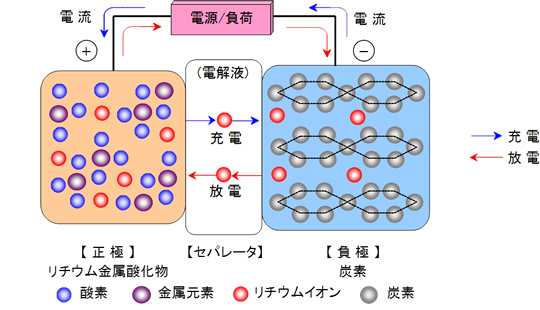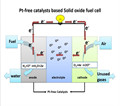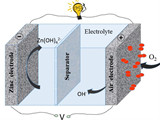Research in Ma lab
Our research involves in Lithium-ion battery, solar cells, fuel cells and air battery, focusing on developing environment-friendly energy conversion and storage devices. In our research, we are combining the first principle calculation with the experiments, for predicting and improving the electrical properties and performance of the new materials. Recently, we are conducting research on lead-free perovskites and Pt-free fuel cells. If you are interested in our laboratory, please feel free to contact us.
Research on high performance and cost reduction of lithium-ion batteries

It is necessary to improve the capacity and safety of lithium-ion batteries used in various fields of technology, such as portable devices, electric vehicles, and large storage systems. Therefore, our laboratory is conducting the following research.
1. Study on silicon negative electrode materials
Since the theoretical value of the specific capacity of graphite used as the negative electrode of a built-in lithium-ion battery is only 372 mAhg -1, it is necessary to develop a new negative electrode material with high specific capacity to improve battery capacity. And silicon has a high specific capacity theoretical value (4200 mAhg-1), it can be increased in capacity and we consider it to be one of the best materials among next-generation lithium ion battery negative electrode materials. In our laboratory, we are developing silicon-based negative electrode materials with various nanostructures.
2. The research of all-solid-state lithium-ion batteries
Traditional lithium-ion batteries have limited capacity (500 Wh / kg) for electric car since the using of conventional electrode materials and electrolytes, so it is indispensable to developing innovative secondary batteries- All-solid-state batteries. All-solid-state batteries (ASSBs) become a good choice because the organic liquid electrolytes are replaced by inorganic solid electrolytes. So it reduce the high-energy loss of compared to Traditional lithium-ion batteries during charging and discharging. Therefore, Our Lab research is focusing on the reduction of interface resistance in All-solid-state batteries and the development of high performance electrolyte materials.
Next-generation Solar Cells

Perovskite solar cells are attracting tremendous attention and experiencing high-speed development in efficiency. Our group are focusing on developing new materials and their applications in perovskite solar cells.
1. Developing high-performance electron selective layer
2. Developing Pb-free perovskite materials
3. Developing carbon-based perovskite solar cells
4. Interface modifications of perovskite solar cells
Pt-free PEM Fuel cells and Solid Oxide Fuel Cells

The Fuel Cell is considered to be one of promising energy conversion devices because of their high power generation efficiency, environmental friendly and fuel flexibility. Conventional Fuel Cells have many disadvantages, such as high operating temperature, interfacial reactions among the components, and limited choice of materials. The research in our lab is aiming to develop a series of Pt-free materials to reduce the cost of the catalyst and improve the performance of intermediate temperate Solid Oxide Fuel Cells.
Zinc-air battery

The redox reaction (ORR), occurring at the air electrode, is an important point in improving the power density of zinc-air batteries. We are dedicated to the development of new electrocatalysts with excellent performance, high chargeability and stability in zinc-air batteries, particularly to the development of ORR electrocatalysts for air electrodes.

